Going in for a car service can be daunting. With the general population lacking in the knowledge of what parts need maintaining versus replacement, it’s easy to end up paying too much. Below are general car service and maintenance tips and an outline by mileage to get you started.
Know Before You Go
Before heading to the dealership or your auto shop of choice, it’s important to do your homework. No need to dread it as you did in high school, this homework can save you money (and who doesn’t love keeping cash in your pocket?)
Read Your Manual
Each car comes with a maintenance manual that lays our suggested mileage and times for routine maintenance and car service. This manual is the basis for what mechanics will suggest—but, they do deviate. Knowing what to expect will help you determine if you’re up-sold on what your vehicle needs to have done.
Know Your Car
Only you can tell how your car is feeling and driving. Brakes may need to be replaced earlier if you have been driving in stop-and-go rush hour traffic regularly. If you have been traveling through mountain passes, check your clutch earlier than anticipated. Maybe car forums say your particular make and model has issues with spark plugs going early? Anticipate that in an earlier service.
Shop Around
Dealerships and auto shops are a for-profit service. While most still do right by their customers, some may look to make a pretty penny out of you naivety. Shop around before settling. Read reviews online. Look up estimates for what a service will normally cost. Don’t go in blind. Knowing what you should be paying and for what services will decrease the chances of being up-charged.
Know What You Can Do
While it’s not suggested to start digging around your engine if you don’t know about mechanics, there are a few car service items you can do yourself.
For example, changing the air filters and windshield wipers are incredibly simple—and inexpensive. Instead of paying hourly wages for someone to do it, just do it yourself with cheaper priced parts. Most auto stores, as well as Walmart, carry air filters and wipers for cheap.
Car Service by Mileage
Below are general maintenance and service by mileage. It’s important to note—these are general services. As your vehicle gets older with more miles, larger ticket items like clutch replacement and transmission maintenance may come into play.
3,000 – 7,000 Miles
Change your oil to keep your car running smoothly. Based on the manufacturer’s suggestion, oil changes occur between 3,000 (older vehicles) and 6,000 miles.
Replace your oil filter as well. For $10, its worth it.
15,000 – 30,000 Miles
15,000 miles marks the first service for a new car, but it’s not too bad. Costing $200 on average, air filter, oil, and oil filter are the only replacement items. Also, rotating your tires and inspecting the engine are suggested.
At 30,000 miles you could be spending around $500—if you aren’t doing your homework. Many of dealerships will suggest replacing spark plugs and flushing the transmission fluid—but, these items could be unnecessary at 30,000 miles. Do a little homework and give your fluids and engine a once-over to determine if you think those services are required.
In general, air filters are usually replaced every 15,000 miles. At 20,000 miles inspect the coolant levels and battery capacity. At 25,000 miles, most fuel filters need replacing. Every 30,000 miles, the air filters and power steering need replacement. Also, inspect the radiator hoses, HVAC system, brake pads and suspension parts for signs of wear and tear.
35,000 – 50,000 Miles
The 45,000 miles service matches the 15,000 miles service—oil change, oil filter, rotating tires, and inspection.
In general, the battery needs inspecting and replacement every 35,000 miles. Non-long-life spark plugs see replacement around 40,000 miles (not 30,000), and the ignition and suspension systems inspected.
All of these checks should reoccur at 50,000 miles.
60,000 Miles
The 60,000 miles services include all the 30,000 miles services, plus a few items. It is time to start thinking about replacing belts, valves, and hoses, including the timing belts and radiator hoses. Long-life spark plugs will need to be looked at and potentially replaced. Brake pads and fluids are likely swapped for fresh pads and fluids as well as new coolant and power steering fluids. Tires, HVAC systems, and suspension systems are inspected.
100,000 Miles
Take a deep breath; you’ve made it. And taker a deeper breath because due to your regular maintenance, this service won’t be that bad.
Long life items like spark plugs and orange coolant finally see a replacement at 100,000 miles. And a thorough inspection is highly suggested to check the general condition of your vehicle.
Regular service and general maintenance can make your car last—without breaking the bank. By keeping fluids and oil clean, you are reducing the wear and tear of your engine reducing the changes of costly repairs. But, it’s easy to get carried away flushing and replacing everything. Take into consideration these mileage points and your maintenance manual before signing on the dotted line for costly maintenance and car service. To schedule a service or to get an idea of prices, call Northwest Auto Center of Houston at 281-894-8880.

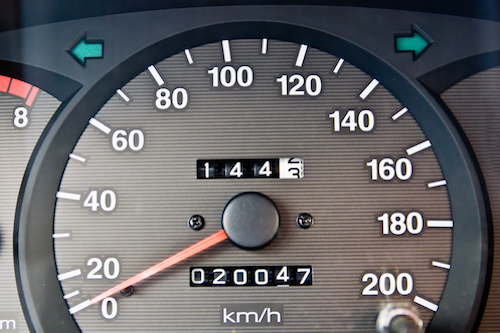
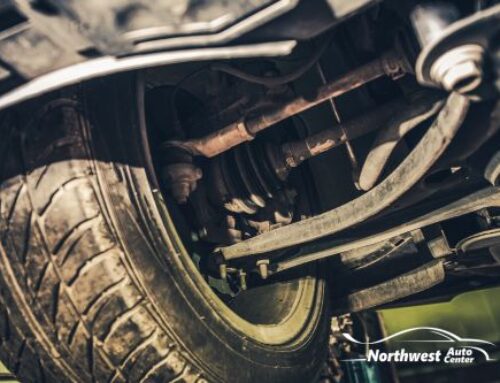

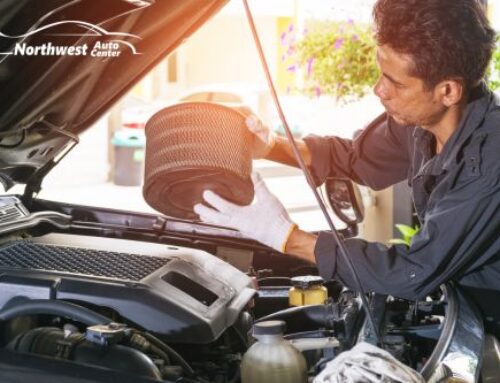
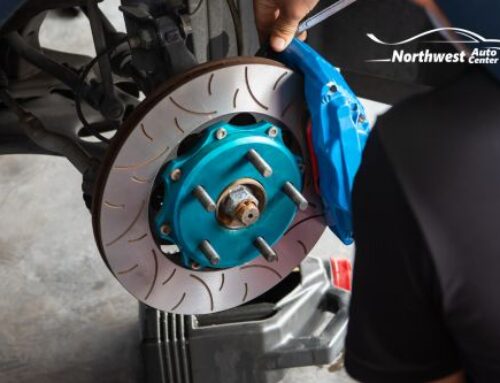
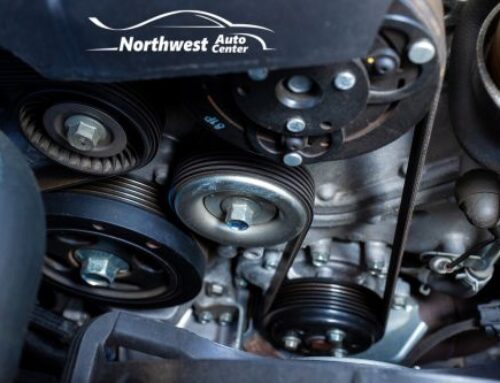
[…] may change mechanics in the future and will want to know what procedures have already been done. Understanding the basics of the […]
[…] may change mechanics in the future and will want to know what procedures have already been done. Understanding the basics of the […]
[…] The new school year means carpooling, after-school activities, and play dates. With all the focus on the kids in this new routine, it can be easy to forget about the most helpful tool you have at this time–your vehicle. The good news is that you can get your car back into tip-top shape with a few auto maintenance and car care tips. […]